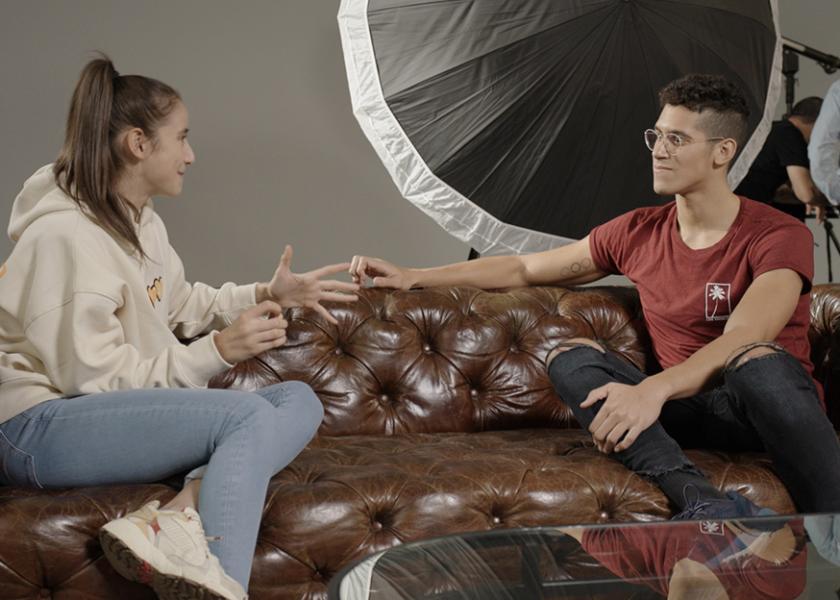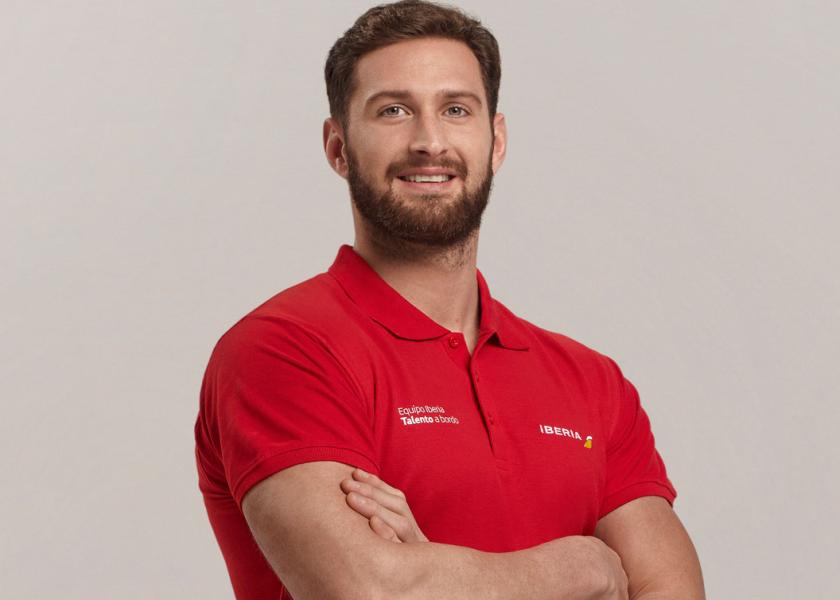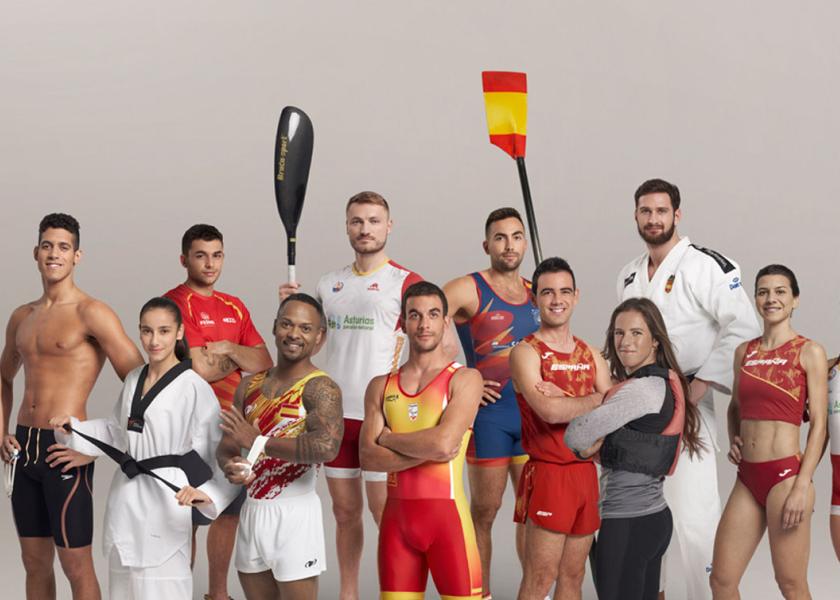Adriana Cerezo
A force of nature
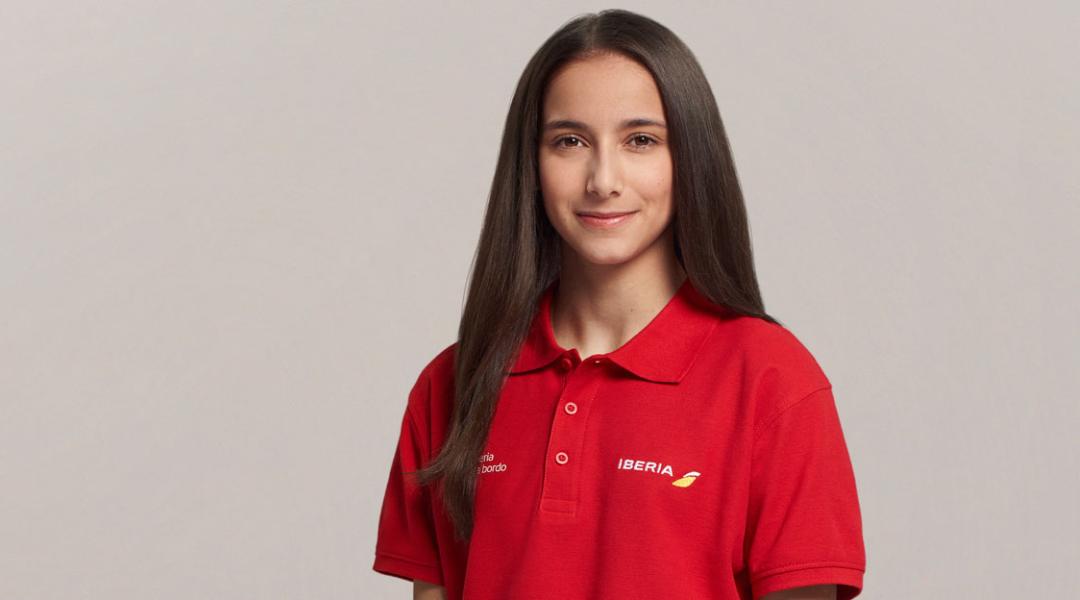
A whirlwind. This is the natural phenomenon Adriana Cerezo is most like both on and off the tatami. And that strength is what carries this taekwondo athlete through the air at each championship and during each training session. After winning the bronze medal at the World Taekwondo Championships in Baku at the end of May, she faces the summer months with the Paris Games on her mind and she’ll train for them alongside her biggest rival: Thai taekwondo athlete Wongpattanakit.
The strength Adriana Cerezo (Alcalá de Henares, 2003) conveys, even over the phone, is overwhelming. The same strength that helped her win silver at the Tokyo Games in the summer of 2021, and which has grown thanks to the subsequent experience she has acquired. After that hit, this taekwondo athlete returned to her everyday life at Hankuk, her club, with a single goal: becoming the best in history. And this includes, among other achievements, winning the gold medal in Paris. “The feeling I have right now is that we can achieve everything we set our minds to,” Adriana herself confesses, after winning bronze at the World Taekwondo Championships in Baku. Over the summer, she’ll train alongside one of her biggest rivals, Thai taekwondo athlete Wongpattanakit —the bane of her life in Tokyo— to continue learning and improving.
You won silver in Tokyo and went from being unknown to a media phenomenon. Now that some time has passed, what are your memories of that time?
The more I look back, the more I realise that for the first few days I was in shock. I was freaking out, I hardly slept. I wasn’t aware of the repercussions it would have. Even though some situations are a bit surreal, it’s cool that people recognise me.
Let me quote your coach: “Adriana is looking better than ever; she’s really focused and grounded.” Since Tokyo, how do you think you’ve improved?
I have more experience now. When I got to Tokyo, I had taken part in very few competitions in the absolute category, but since then I’ve participated in top level championships. Being able to compete regularly against the best in the world is a bonus, it allows you to keep learning and correcting mistakes.
“The greatest talent you can have is the ability to work hard. Training every day and always giving a bit more of yourself is what makes a difference”
At the end of May, you won bronze at the World Taekwondo Championships in Baku. Do you feel like you’ve established yourself among the best female taekwondo athletes in the world?
I think so, right now I’m near the top of the world ranking. Above me are the rivals I need to beat, the Thai Wongpattanakit, who beat me at the final, and the Turk Dinçel. My last few combats against them have come down to trivial details, which stings but also motivates me to do better. I want to win and reach number one.
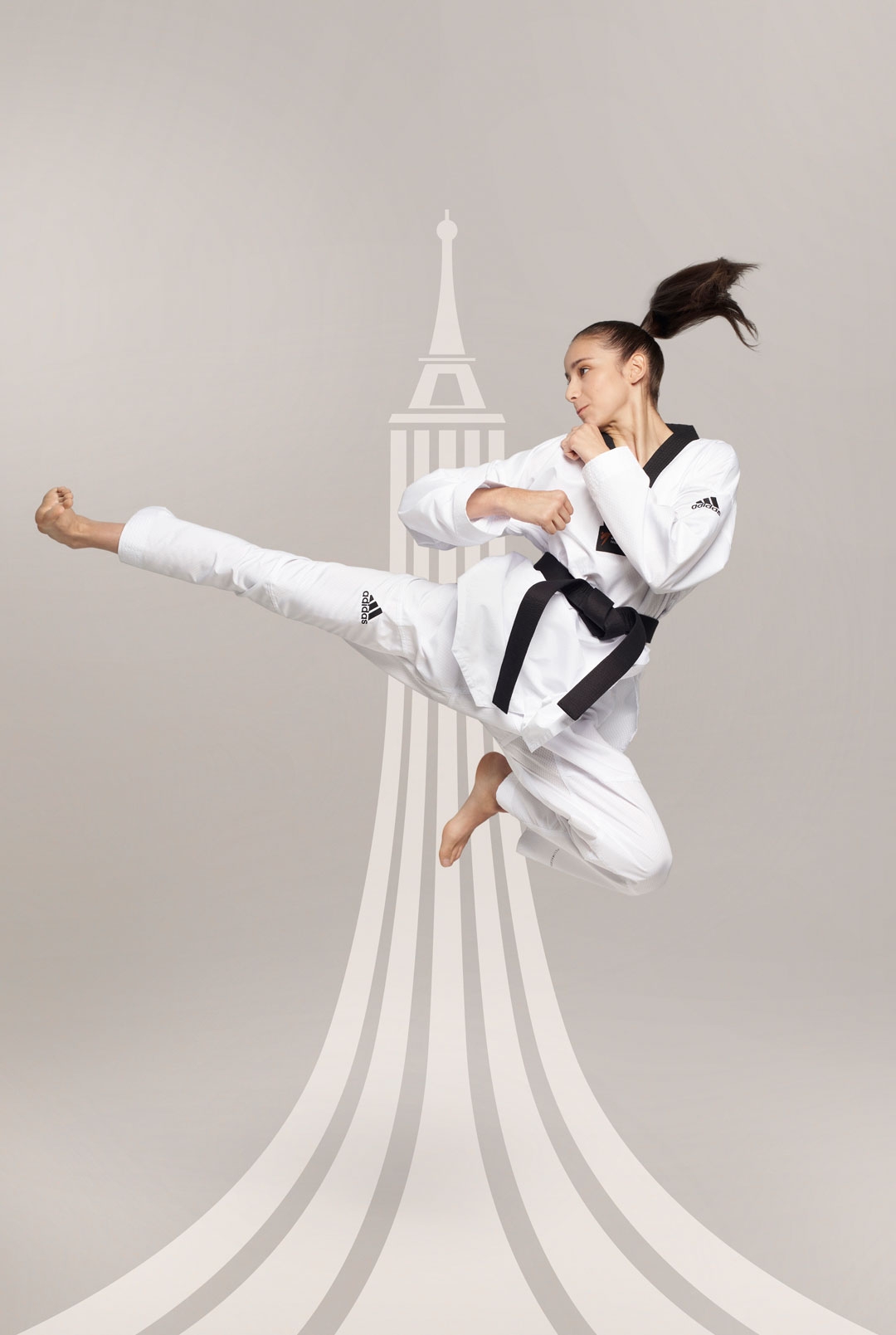
Adriana Cerezo, silver at the Tokyo Games, has set her sights high in the french capital.
Your club mate, Luana Márton, won gold in her category at the tender age of 17 in Baku. What is it about Hankuk that makes such young champions?
We have an understanding of taekwondo based on intensity and daily work. Luana is actually next to me right now [Adriana is replying to this interview during a physiotherapy session]. I swear (laughs). She’s worked so hard and still isn’t really aware of what she’s achieved. At Hankuk, we have the resources and an incredible team who help us give our all.
Does training alongside Luana and the rest of your mates make you better? That is, do you believe talent grows when it connects people?
I believe there are lots of types of talent within taekwondo, from having good control of distances to having an amazing technique, but the greatest talent you can have is the ability to work hard. Training every day alongside your fellow athletes and always giving a bit more of yourself is what makes a difference.
“You need to be able to win a big championship and not settle, but you also need to be capable of not feeling frustrated when you don’t win”
You’ve said before that your goal is to be the best taekwondo athlete in history. What talent do you need to have to make that dream come true?
One of them, which is the one that’s taking me more work to acquire, is balance. You need to be able to win a big championship and not settle, but you also need to be capable of not feeling frustrated when you don’t win or don’t achieve your goal. Then it all depends, as I was saying, on your daily work. That’s not a problem for me, because I love coming to train every day. My goal, obviously, is to be number one, but what I’d love is to get to the end of my career, look back, and feel like I’ve not only made it, but, above all, that I’ve deserved it.
To become the best taekwondo athlete in history, you need to win gold at the Paris Games. Just over a year away, which are your impressions?
The feeling I have right now is that we can achieve everything we set our minds to. So, I want to carry on in this vein, even boost it, for the Games. I think I’ve done well at the last championships, although I’m aware that, when it comes down to it, anything can happen.
“The moment you believe you’re sacrificing things, it’s all going to become a struggle. Life is about choices”
How does someone who is as competitive and tough on yourself as you manage the frustration of losing?
Defeats sting and it’s something I have to improve. But I have it easy because I solve everything through training. When I lose, the next day I feel even more motivated to train because I want to improve. Obviously, I’m not going to be able to correct all the details that have led me to lose on that first day, but mentally I feel like I’m doing everything I can so that it doesn’t happen again. That reassures me. My mentality is finding solutions to problems.
You’re one of the best taekwondo athletes in the world and, on top of that, you’re studying Criminalistics. What’s it like travelling around the world with your notes?
It’s something I’ve always done since an early age, it’s something I find normal. I’m used to studying on planes or at hotels. Sticking to school was always one of the conditions to be able to train and it’s something I’m really grateful to my parents for. I hope sport will be my life, but I want to have a backup plan; I think it’s essential. Also, studying helps my mind not be focused exclusively on taekwondo.
You’re only 19; do you sometimes envy the lives of your friends who aren’t elite athletes?
You won’t believe me, but I honestly don’t. I’m lucky to live incredible experiences connected to sport. For example, I’ll be spending this whole summer in Thailand, China and Korea. I’ve always dealt with it well. In fact, I think the moment you believe you’re sacrificing things, it’s all going to become a struggle. Life is about choices.
